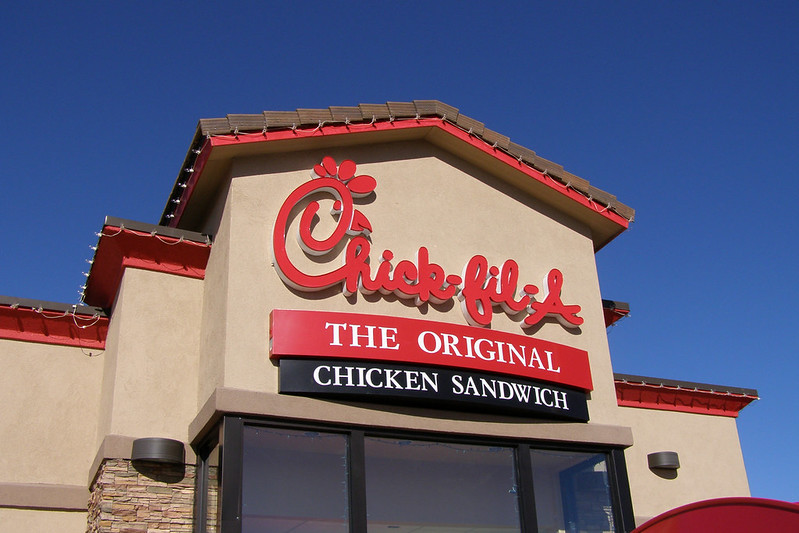The Supreme Court has kicked the case back to a lower court, prompting San Antonio officials and conservative activists to both claim victory.
The Texas Supreme Court has found that activists protesting San Antonio’s ban on Chick-fil-A restaurants failed to present sufficient evidence of religious discrimination.
According to The San Antonio Report, the high court has since sent the lawsuit back to trial court, where San Antonio officials hope that it will be dismissed.
“The Texas Supreme Court agreed with the City’s legal arguments but sent the matter back to the trial court for further action on jurisdictional and standing issues,” San Antonio City Attorney Andy Segovia said in a statement. “We expect to resolve this matter fairly quickly.”
However, conservative activists have already begun touting the return to lower court as a victory, saying they now have another chance to demonstrate their claims.
“Now we will re-plead with facts and merits of the case showing adverse action after the effective date of the enactment, and we will win in the name of business owner conscience rights and religious liberty for all,” the right-wing San Antonio Family Foundation said in a statement.
The San Antonio Report notes that the Family Foundation had accused San Antonio of violating Texas’s so-called “Save Chick-fil-A” law.

The law, says the San Antonio Report¸ was passed after the San Antonio City Council decided in 2019 to remove Chick-fil-A from an airport concession contract.
In their decision, council members cited the company’s well-documented and long-standing history of anti-LGBT actions.
However, several other councilmen cited the restaurant’s own business practices as a reason for its removal, including Chick-fil-A’s regular Sunday closures.
The so-called “Save Chick-fil-A” law, signed by Texas Gov. Greg Abbott several months after the council’s decision, prohibits any governmental entity from taking adverse actions against an individual or entity based wholly or partly on their membership in or affiliation with a religious organization.
In their ruling, the Supreme Court justices observed that San Antonio’s “adverse actions” apparently took place long before the state passed its Save Chick-fil-A statutes.
“All of the factual allegations describing actions by the City relate to conduct that occurred at the March 21, 2019 City Council meeting, well before the statute’s September 1, 2019 effective date,” the justices wrote. “There is an assertion that the City’s alleged violation is continuing in nature.”
“But the petition,” they added, “alleges no facts to support this assertion; it nowhere describes any ‘action’ by the City after September 1, 2019, that could constitute a violation, as the statute requires.”
Despite the Family Foundation’s inability to demonstrate religious discrimination, the Texas Supreme Court will allow the organization to replead its case in lower court.
Justices Jimmy Blacklock and John Devine, says The Texan, wrote that the Family Foundation should not have to show that concrete discrimination had already taken place, but that there is a credible threat of religious discrimination in the future.
“Courts cannot order the government not to do something it has already done, but they can order it to continue doing such things in the future,” Blackburn wrote. “It follows that plaintiffs seeking prospective injunctions, as these plaintiffs do, must allege a credible threat of the future enforcement they want enjoined.”
Sources
Texas Supreme Court kicks Chick-fil-A lawsuit back to lower court, citing lack of evidence
Texas Supreme Court rules in lawsuit filed against City of San Antonio over Chick-fil-A airport ban
Texas Supreme Court Says Citizens Suing San Antonio Over Chick-fil-A Removal May Replead Case


Join the conversation!